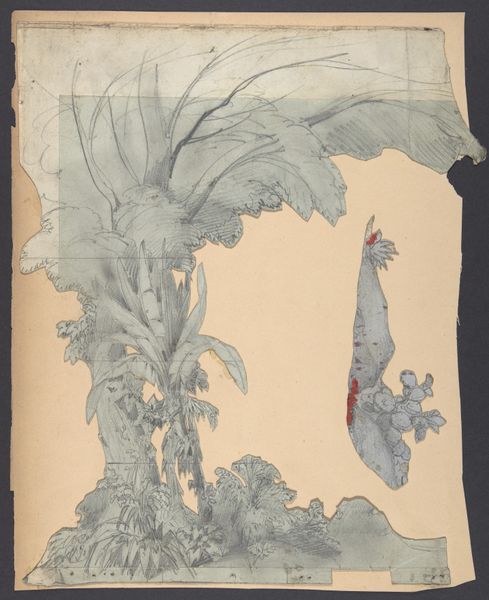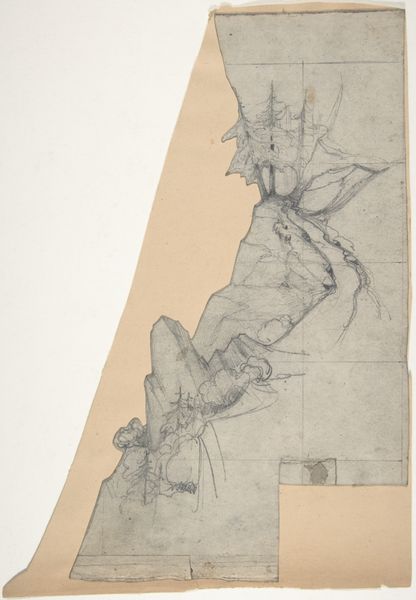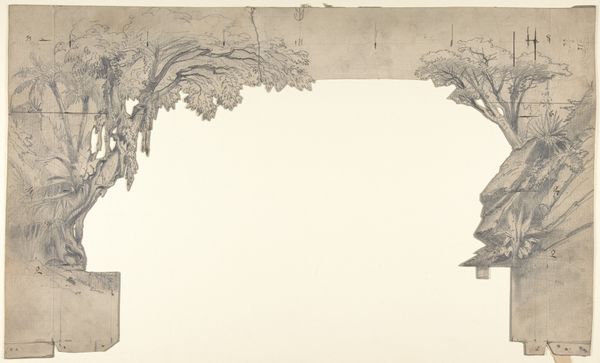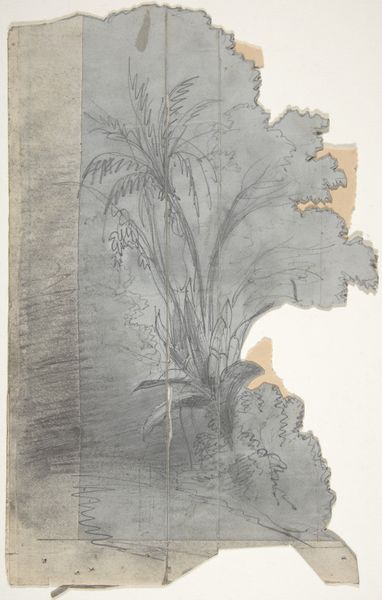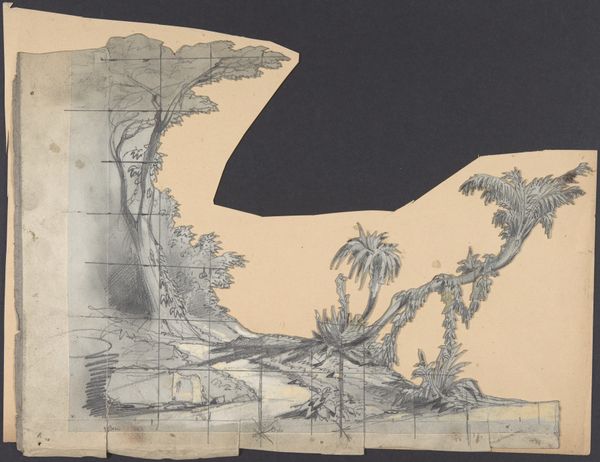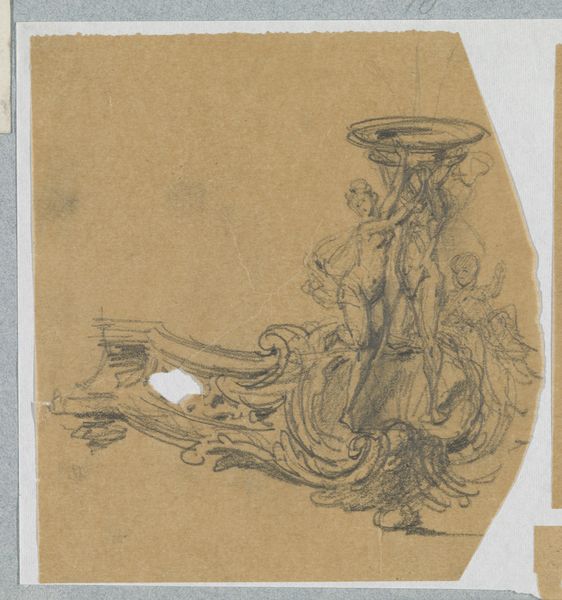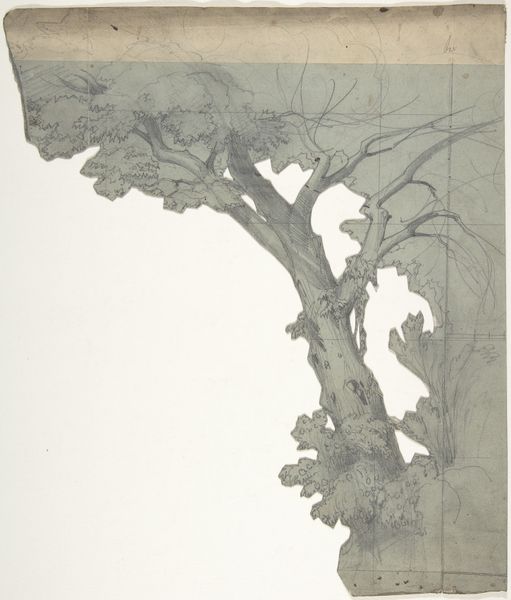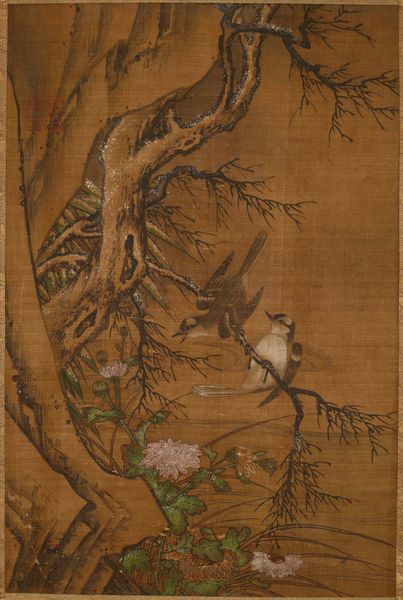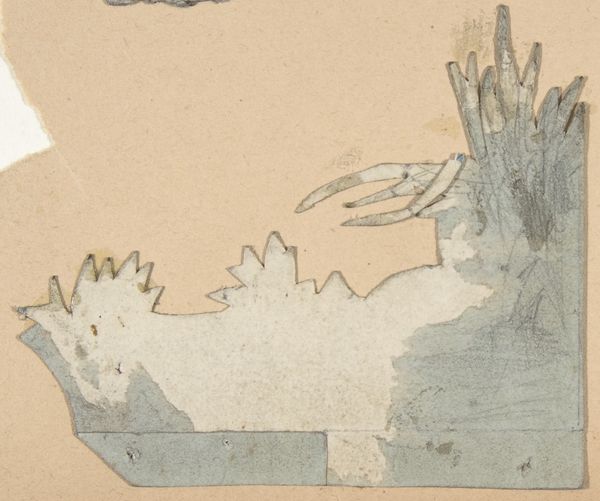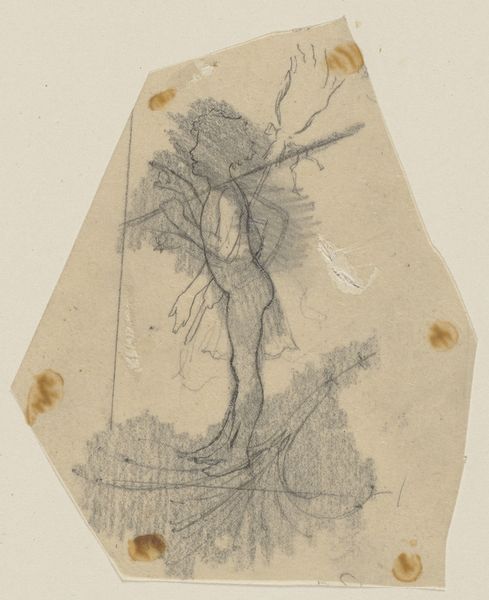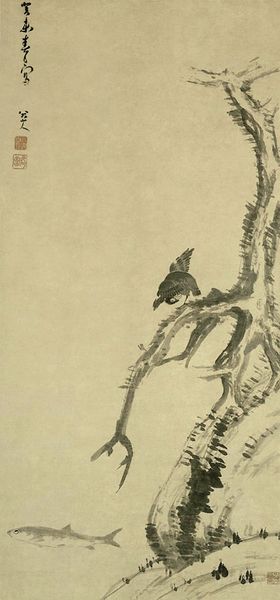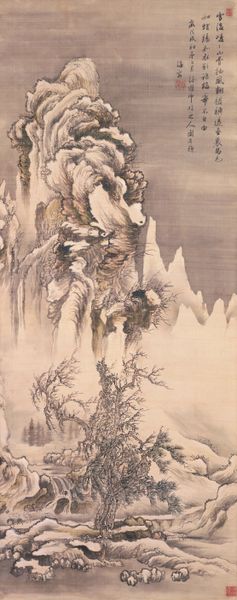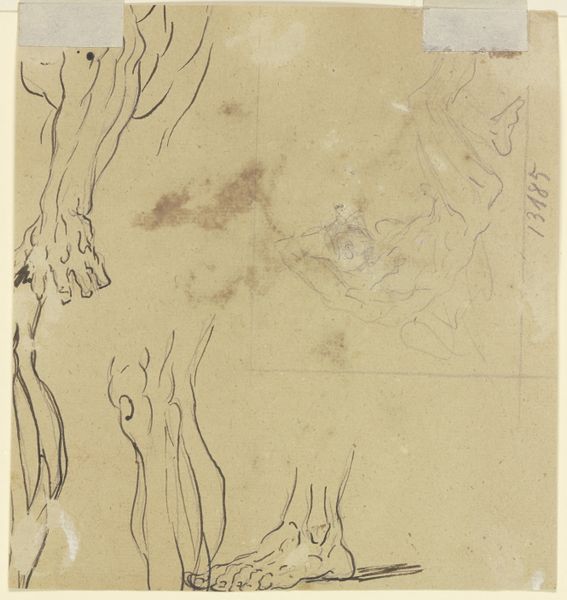
Design for a Stage Set at the Opéra, Paris 1828 - 1890
0:00
0:00
Dimensions: Irregular sheet: 12 7/16 x 10 7/16 in. (31.6 x 26.5 cm)
Copyright: Public Domain
Curator: Here we have Eugène Cicéri's "Design for a Stage Set at the Opéra, Paris," dating from 1828 to 1890. The medium involves drawing and print. What are your initial thoughts? Editor: It strikes me as melancholic. The stark lines of the aged paper evoke a sense of bygone grandeur. The scene is filled with shadows that feel heavy, like memories clinging to the bark of those sketched trees. Curator: Absolutely. Understanding Cicéri’s work demands situating it within the burgeoning Romanticism movement in France. The emphasis on intense emotion and the power of nature aligns with the broader sociopolitical unrest and yearnings for liberation that permeated that era. Editor: The weeping branches, the very *shapes* he chooses...the downward flow directs the eye to earth, suggesting a return, or perhaps even a longing for a past. Does that tie to particular operas he worked on? Curator: The social function of opera was changing during Cicéri's time, becoming more about spectacle. But it also, perhaps paradoxically, allowed for exploration of internal emotional landscapes within rigidly prescribed social codes. The romantic yearning and the exotic other. It’s difficult to link *this* specific set design to a specific piece, but his theatrical sets did much to shape the imagery of many operas in the popular imagination. Editor: So the *idea* of an enchanted, perhaps dangerous, forest took shape through him. What cultural associations were attached to forests at that time? They definitely weren't the purely restorative "natural spaces" that some now imagine. Curator: Forests often symbolized the untamed aspects of the human psyche – fear, desire, the confrontation with mortality. I think Cicéri skillfully exploits these associations, inviting viewers to reflect on these darker undercurrents, while simultaneously framing this interiority as externalized scenery to be gazed upon from a distance. The elite distance. Editor: Yes, and those feelings endure...a visual shorthand for inner turmoil and transformation, like fairy tales we whisper in the dark. Thank you; that provides so much depth. Curator: My pleasure. The Romantic era gave way to so much political change; remembering the personal struggles makes viewing artwork from this period all the richer.
Comments
No comments
Be the first to comment and join the conversation on the ultimate creative platform.
